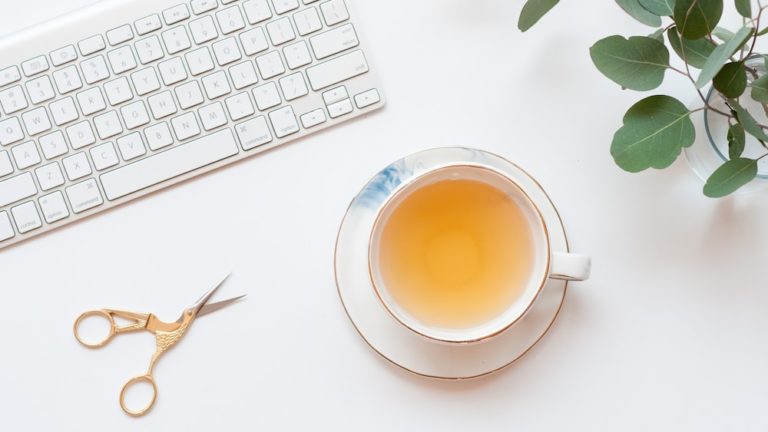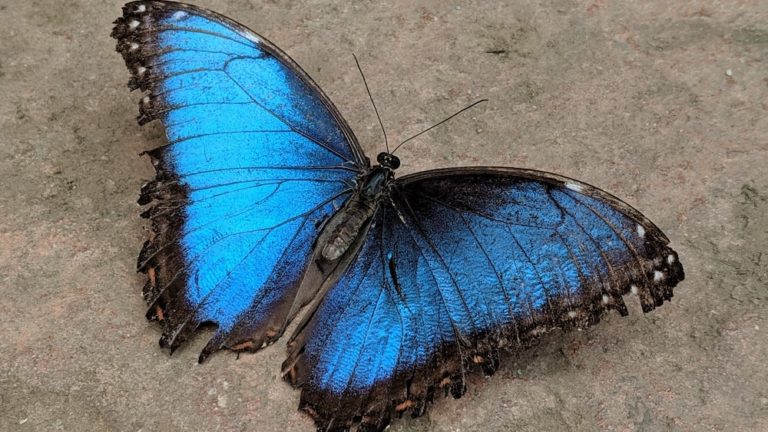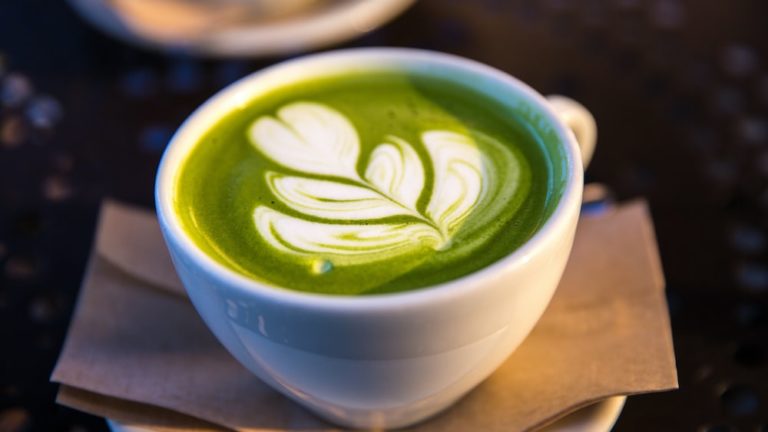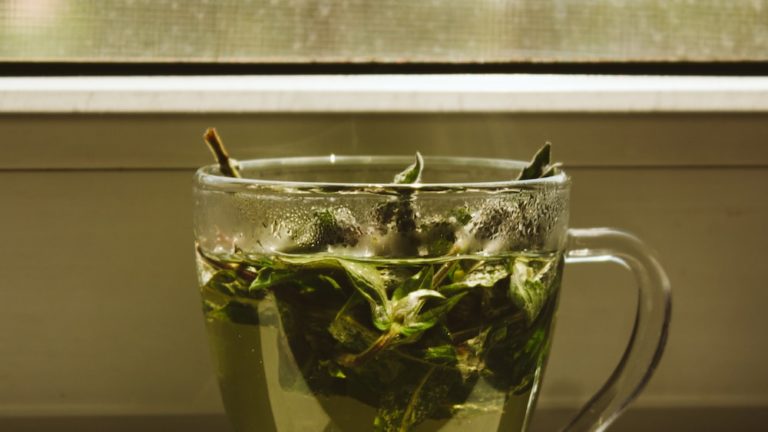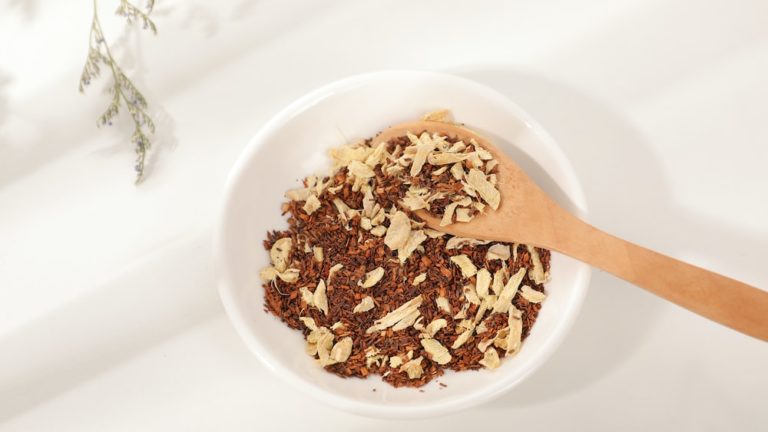11 Surprising Matcha Tea Side Effects: What You Need To Know
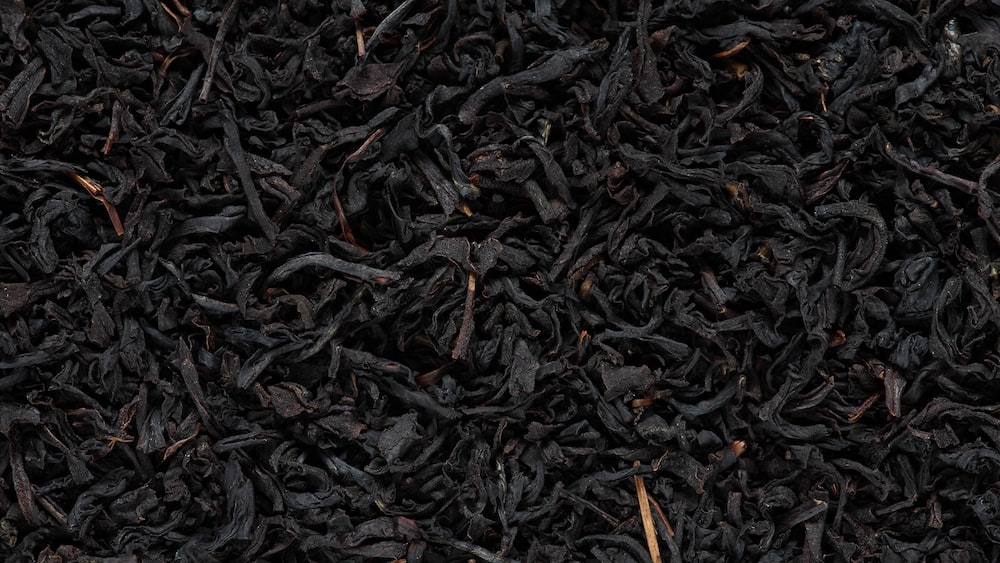
11 Surprising Matcha Tea Side Effects: What You Need To Know
Hello, fellow tea enthusiasts! Let’s talk about green tea’s trendy cousin, Matcha. If you’ve pushed your way through the sea of Starbucks aficionados, you might’ve noticed this vibrant green powder wiggling its way onto the menu. Like a popular celebrity, matcha tea pops up everywhere, from lattes and ice creams to baked goods and health shakes. But, do we know our celebrity tea well enough?
Just like any Hollywood A-lister, matcha has its secrets, too. Yes, we’re talking about side effects, dear friends. You might ask, “Side effects, in my morning cuppa? You’ve got to be kidding!” Well, buckle up for a fascinating tea-sploration!
Understanding Matcha Tea
Now, hold your teacups steady as we delve into understanding matcha tea. It’s time to lift that veil of mystery, dear readers. We’re prepped and ready for a deep dive into the world of Matcha.
What is Matcha Tea?
Before we get to the nitty gritty, let’s talk basics. Saying matcha and green tea are the same is like saying Batman and Bruce Wayne are regular dudes. One is the regular alter ego and the other is a badass superhero– your guess on who’s who.
Matcha, essentially, is green tea leaves ground into a fine powder. You’re literally eating the tea, folks! Hence, matcha teas are denser and pack more punch compared to your typical brew. Talk about tea going full Hulk on us!
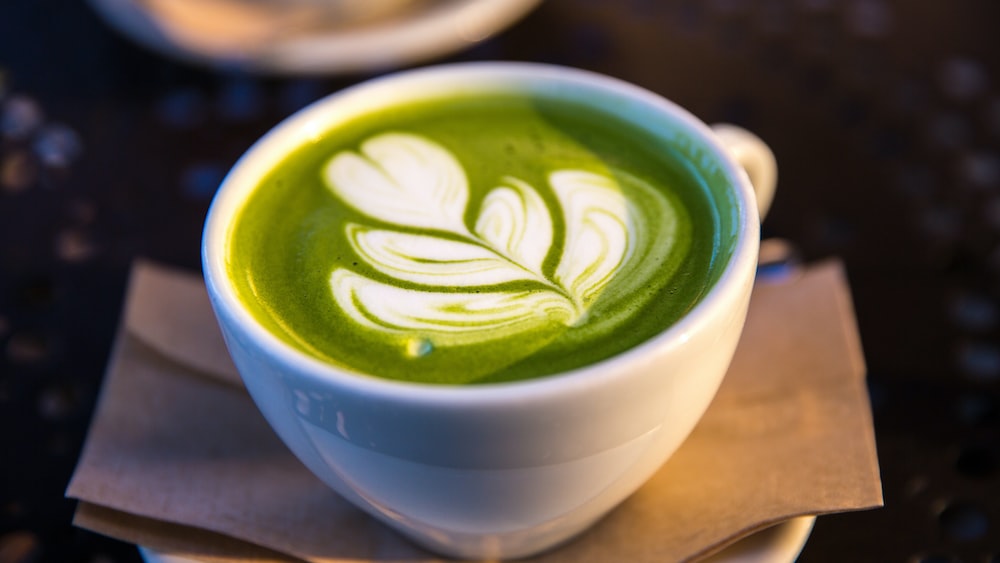
Matcha is like the superhero version of green tea, with its leaves ground into a fine powder and packed with more power than your typical brew.
The Popularity of Matcha Tea
Ah, popularity. It’s a fickle fiend. Like the lightning fast speed of a teen’s changing Instagram following, matcha’s popularity skyrocketed within a blink. From rare and expensive, it went to available in your corner grocery store. Crazy, right?
The buzz around matcha’s health benefits was likely the fuel for its rise in popularity. Like yoga pants in a fitness obsessed city, where there are health benefits, a trend is sure to follow. “How beneficial, you might ask?” “Super-duper beneficial,” we retort!
The Health Benefits of Matcha Tea
We’ve teased you enough about these ‘super-duper’ benefits. So brace yourselves folks, as we dive into the treasure trove of benefits matcha tea provides. Did someone say antioxidants and potential liver protection? Shush, too soon!
Rich in Antioxidants
Let’s welcome the superstar of matcha benefits: antioxidants. Imagine antioxidants as little soldiers, fighting off the bad boys fueling illnesses and aging, known as free radicals. Matcha is packed with these tiny warriors.
In fact, matcha tea is richer in antioxidants than its green tea counterpart. Think of it as green tea on steroids. Now, is that a competition you’d like to witness?
Potential Liver Protection
You might often hear echoes of “detox” in wellness circles. If it were a trending hashtag, it would be #detox. And surprise, surprise, the hero of our detoxification saga is none other than matcha.
Researchers have found that regular consumption of matcha tea may offer liver protection and reduce the risk of liver disease. Ahem, did someone say another feather on matcha’s cap? Indeed! But wait, here comes the irony, Overdoing it might have the reverse effect, leading to liver damage (more on this later).
Take a moment to raise your cups (and eyebrows) to this duality. A little Hulk-style destruction, even in the world of matcha, it seems!
Boosts Brain Function
Picture an army of tiny green tea leaves charging towards your brain barriers, ready to give them a jolt of energy. Sounds exciting, right? Research has demonstrated that matcha contains a certain type of amino acid known as L-Theanine, which provides a considerable brainpower boost.
What’s more, the good news doesn’t stop there. It turns out matcha can also help us relax, meaning it boosts brain function without turning you into an anxious, jittery mess. Quite the superhero tea, wouldn’t you agree?
Matcha, the superhero tea, charges through your brain barriers with a jolt of energy, thanks to its L-Theanine content, while also promoting relaxation and boosting brain function without causing anxiety.
May Aid in Weight Loss
Now, this is where matcha flexes its muscles and preens. For those eyeing the scale, matcha may be a secret weapon. Numerous studies have demonstrated that it may boost metabolism, helping increase energy expenditure and fat oxidation.
So while we cannot promise matcha cupcakes will melt away your waistline (sorry, folks!), a shot of matcha tea might just be your fitness pal. But, as always, caution is advised! A cup of matcha doesn’t replace that hour at the gym, just adds to it!
Promotes Heart Health
Imagine opening the door to your heart, inviting a strong, vibrant green friend in. A friend that protects and cares. A friend named matcha. Too dramatic? Well, we’ve got a thing for romance over here.
But here’s the reality. Studies have found that matcha does have potential heart health benefits. Regular consumption has been linked to a reduced risk of heart diseases. But, pump your brakes folks! Remember, matcha is only part of the equation. A balanced diet and exercise will always remain the power couple for heart health.
The Surprising Side Effects of Matcha Tea
Now for the plot twist you’ve all been waiting for – the side effects! Because, let’s face it – no hero (or tea) is perfect. Let’s uncover the other side of our verdant friend, matcha tea, together.
1. Nervousness and Anxiety
Now, here’s a shocker. Your beloved cup of matcha tea could be the cheeky little culprit behind your sudden bouts of nervousness and anxiety. Who could have thought, huh? Matcha tea is rich in caffeine, yes that wake-up-happy substance that puts a pep in your step. Caffeine is grand, but a large serving might lead you dancing on the jittery edge of nerves.
Research has shown that high caffeine intake can cause or worsen anxiety in some individuals. The tricky part is figuring out the ‘caffeine tipping point’, the line between one cup too many and the ‘just right’ amount that gives the perfect soothing beverage experience, without sending your anxiety through the roof.
So, the saga between matcha tea and anxiety is kind of a ‘it’s complicated’ relationship, primarily driven by the caffeine content. And a fair word of warning – anxiety could just be the tip of the iceberg. We’re just getting started here, folks!
2. Sleep Disruptions
Caffeine, our good ol’ sneaky friend from the previous paragraph, has more shades to its character. Getting jittery is one thing, but causing sleep disruptions is a whole new ball game. Raise a hand if you like tossing and turning all night – I thought not!

While matcha tea may seem like the best beverage to keep you going through a lethargic afternoon, it may very well rob you of your peaceful slumber. Studies show that caffeine can interfere with your sleep cycle, and well, nobody wants to count sheep all night.
3. Stomach Discomfort
Switching gears, let’s leave our restless friend caffeine behind and take a little detour down to Digestion Lane. Ever felt a bit queasy after having your darling matcha tea? That could be stomach discomfort – another surprising guest at the tea party.
For some, a warm cup of matcha tea can feel like a soothing hug to the stomach, but for others, it might be more of a belly bump. This reaction is due to tannins present in the tea, which could give your stomach a good stir, leading to mild to moderate discomfort. Think along the lines of constipation, stomach ache, or even nausea.
My happy advice? It’s all about balance and knowing your body. Too much of a good thing – be it matcha tea or non-stop Marvel movie marathons – can backfire. So, moderation is key in keeping that belly happy!
Matcha tea can cause stomach discomfort for some due to the tannins present, so it’s important to find a balance and listen to your body.
4. Dehydration
Let’s dive into another side of matcha that might be causing you more trips to the little girls’ or boys’ room – dehydration. Yes, the soothing beverage might just be a thirsty little paradox!
Drinking excessive amounts of tea, including matcha, can lead to dehydration. This is mainly because caffeine – yep, our nosey friend is back again – is a diuretic, which means it can increase urine production and lead to increased water loss.
It’s important to balance your matcha tea consumption with adequate water intake. This way, you’ll stay hydrated and keep the love affair with your favorite brew going strong!
5. Risk of Anemia
Pause. Let’s touch on a more serious tone here. A less-known side effect of indulging in too much matcha tea is the risk of anemia. Anemia engages with the body’s ability to produce sufficient red blood cells, producing symptoms such as fatigue, weakness, pale or yellowish skin, and irregular heartbeats.
Specific compounds present in matcha tea can hinder iron absorption, increasing the risk of anemia particularly in people who are already prone to the condition. It’s crucial to regulate how much and when you’re enjoying your matcha fix, especially if you’re diagnosed with, or at risk for, iron deficiency anemia.
6. Teeth Staining
Oh no, not the pearly whites! Get ready for another shocker – excessive matcha tea consumption can stain your teeth. Let’s be honest, nobody likes sporting a matcha-green smile!
Matcha tea contains tannins – pigmented compounds responsible for the tea’s vibrant color. This is all well and good until you realize those same tannins are artists at staining! They latch onto your tooth enamel, causing discoloration over time.
I’m not suggesting we start sending hate mail to tannins, but it’s definitely worth taking note. Regular dental hygiene practices coupled with balanced tea consumption can help mitigate this risk. The aim isn’t to deprive you of your favorite brew, but make sure you get to enjoy it without paying a teeth-staining price!
7. Exposure to Toxic Elements
Delving deeper into our matcha voyage, we also need to talk about potential exposure to toxic elements. Yes, as harsh as it sounds, it’s a reality. Studies suggest that tea leaves, including matcha, can accumulate trace toxic elements from their growing environment, including lead.
While the levels are generally not harmful if you’re an occasional tea drinker, routinely gulping down large servings of matcha can mean greater exposure. It’s a bit like soaking in a city’s traffic noise – tolerable in small doses but overbearing when you’re constantly exposed to it.
8. Potential for Acne Breakouts
Ever noticed an unwanted pimple party on your face after savoring a few cups of matcha tea? Surprise, surprise! High caffeine intake from your daily dose of matcha might be playing party popper. Research suggests that caffeine can cause fluctuations in your hormones, leading to acne breakouts.
It’s that sneaky caffeine again! What a party crasher, huh? Just a quick note – everyone has unique skin reactions. So, this doesn’t mean everyone will develop an unwanted pimple party after having matcha tea.
9. Possible Interference with Iron Absorption
OK, let’s get straight to the point here – drinking loads of matcha tea can possibly interfere with iron absorption. Tea contains certain compounds that can bind with iron, interfering with your body’s ability to absorb it.
To beat this irksome side effect, you could wait a good one hour post mealtime before serving yourself a soothing mug of matcha tea. A simple shift in timing and voila, you can still enjoy your matcha moments without playing tug of war with your iron absorption!
10. Risk of Overdose
Wrap-up on a serious note here. Overconsumption of matcha tea – or any food or drink for that matter – could lead to an overdose. Think palpitations, dizziness, nausea, insomnia, and terrible headaches. Trust me, it’s not a party you’d want to attend!
Practicing moderation is key. Remember, your beloved matcha is a cup of joy – not a jumbo-sized goblet! Check in with your body, your heart rate, your energy levels, and your sleep quality. If something feels quirky, it’s worth re-evaluating your matcha intake. It’s all about finding that teatime balance, folks!
Overconsumption of matcha tea could lead to overdose symptoms like palpitations, dizziness, nausea, insomnia, and headaches, so practicing moderation is key.
11. Potential for Liver Damage
While Matcha tea may roll out the welcome wagon for antioxidants, there’s a dark side to this green delight. High consumption of Matcha tea, to be precise, more than five cups daily could potentially dance on the border of liver damage due to its egcg (epigallocatechin gallate) content. You see, everything in excess has its catch, and the seemingly harmless Matcha is no exception.
Of course, this is not to incite a tea-drinking rebellion among the Matcha aficionados, oh no! This information is akin to that warning at the bottom of your favorite pack of chips that nudges, “excessive consumption may lead to weight gain”. So, the key here, dear tea-lovers, is moderation and respect for that old saying, “too much of a good thing can be bad.”
How Much Matcha Tea is Too Much?
Ah, yes! The million-dollar question! How much is too much when it comes to Matcha tea? Allow me to put it into perspective. Picture this; Matcha tea is like that charismatic friend who’s fantastic in small doses but can quickly become overbearing if they overstay their welcome.
Understanding Matcha Tea Dosage
A single serving of Matcha tea typically carries about 70 milligrams of egcg. Now, this might seem a teeny-weeny amount for all you tea enthusiasts but remember, it’s a potent antioxidant. You see, the charm of Matcha, like most teas, lies in sipping (pun intended), not gulping.
One to two cups of Matcha tea a day should provide the health benefits without the side effects. Anything more than this, and you might be signing up for an unforeseen trip to the land of tea-related discomforts, and nobody wants that, do we?
Factors Influencing Matcha Tea Consumption
Pouring over the factors governing Matcha tea consumption is akin to solving a Rubik’s cube puzzle. Spoiler alert: there isn’t a one-size-fits-all. The “ideal” amount depends on individual factors such as body weight, tolerance to caffeine, and overall health status.
Secondly, remember that everything we consume has a knock-on effect. Factors like your daily diet, hydration levels, and even exercise regimen can influence how your body responds to Matcha. The good news is you need not be an expert to navigate this. It’s merely about brewing a personal understanding of your body’s tea-tolerance.
Lastly, let’s take a moment to talk about quality. Not all Matcha teas are born equal. The quality, particularly the egcg content, varies depending on the grade, origin, and processing method. So, when choosing your cup of Matcha tea, be sure to exercise some quality-control.
FAQs
1. Is Matcha Tea Safe for Everyone?
When it comes to Matcha safety, the adage proves true; it’s not your cup of tea if you’re allergic to caffeine or at risk of liver disease. Pregnant and breastfeeding women, people with heart conditions or stomach ulcers, and those taking iron supplements might want to approach Matcha with caution.
2. Can I Drink Matcha Tea Every Day?
Absolutely, clearing your daily schedule for a Matcha tea rendezvous is generally fine as long as you stick to no more than two cups. But remember, like a fine script, every person’s tea tale is different, so it’s crucial to tune in to your body.
3. What is the Best Time to Drink Matcha Tea?
While there’s no hard-and-fast rule, savoring Matcha tea in the morning or early afternoon could offer optimal benefits, given its caffeine content and the potential to kick-start the day or add to an afternoon resurge. Be wary though, a late-night date with Matcha might keep you tossing and turning in bed.
4. Can Matcha Tea Replace My Regular Green Tea?
Indeed, Matcha tea can gracefully take up the mantle of your regular green tea. More than a sum of its parts, Matcha provides a more concentrated dose of nutrients, thanks to its unique preparation method. But be aware, trading could mean adjusting to the taste and effects of egcg, that naughty potent antioxidant.
Conclusion
Navigating the world of Matcha tea might initially feel like a ride on a rollercoaster, exhilarating but slightly dizzying. But remember, knowledge is the key to enjoying this tea-journey, and now, armed with these insights, you’re all set to unleash the tea connoisseur in you!
Let’s not forget, tea-drinking, like life, thrives on balance. So, whether you’re new to Matcha’s charm or a veteran tea guerrilla, moderation is your trusty compass guiding you towards a healthier life, one cup at a time!
Till we meet again in another tea-tale, remember, life is like a cup of tea, what you brew is what you get! Over and out, Zoe.

